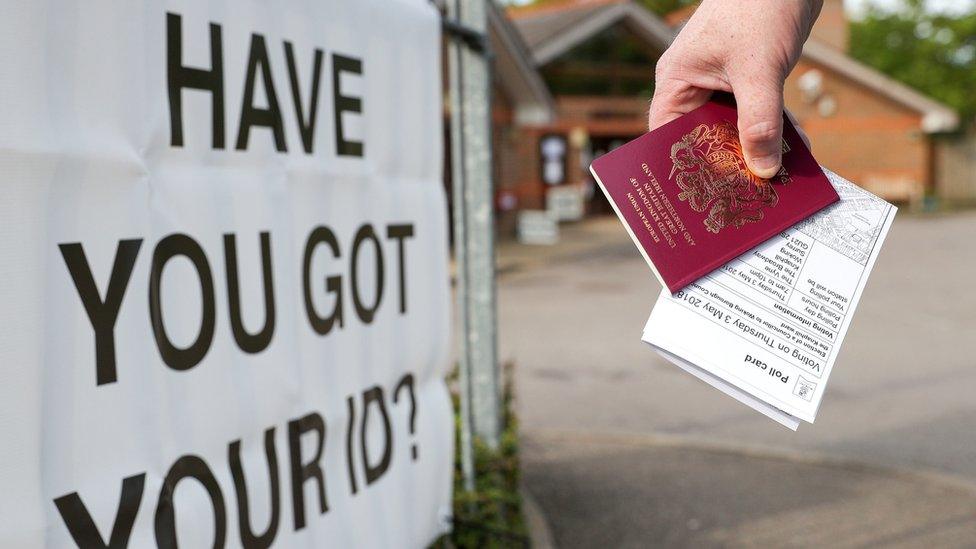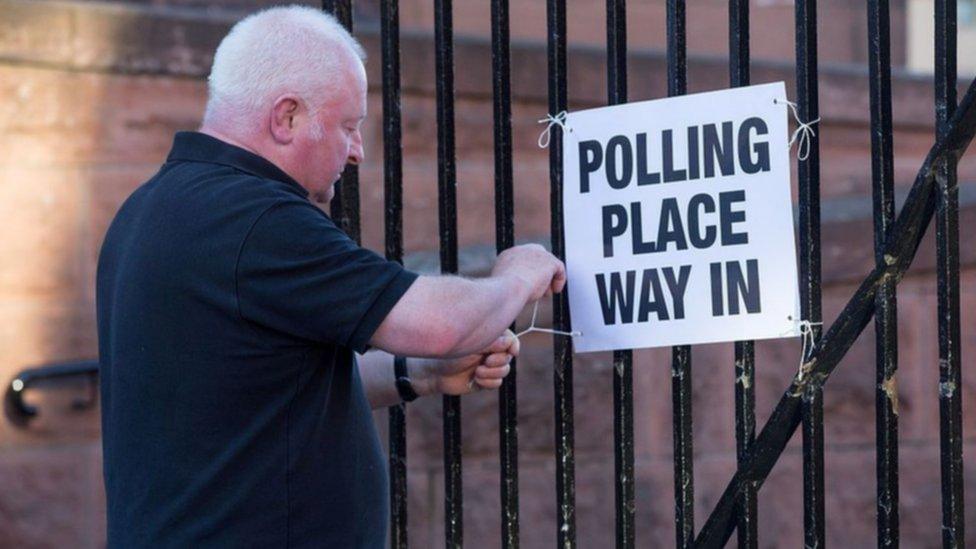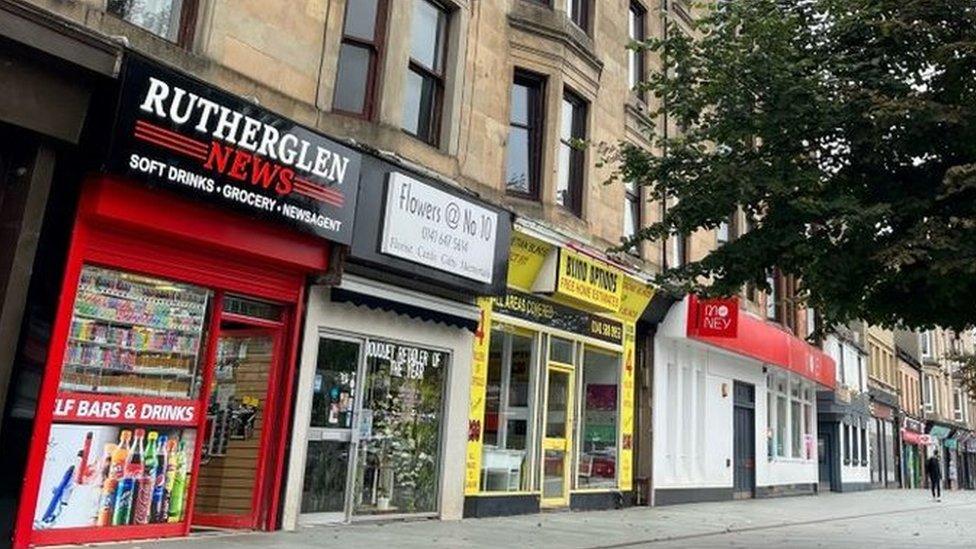Voter ID warning ahead of Rutherglen and Hamilton West by-election
- Published

People will require photo ID to vote in the Rutherglen and Hamilton West by-election
New voter ID requirements will have a "major impact" on a key Westminster by-election in Scotland, a campaign group has warned.
The Electoral Reform Society said the changes would result in voters being turned away from polling stations in Rutherglen and Hamilton West.
Residents without valid photo ID have until 27 September to register for a free Voter Authority Certificate.
The UK government claims the system helps to combat voter fraud.
It said local authorities were continuing to "deliver our elections robustly and securely".
The voter ID rules will be used in an election in Scotland for the first time during the Rutherglen and Hamilton West vote on 5 October.
While they apply to Westminster votes and English local elections, the rules will not be used in Holyrood ballots or Scottish local elections.
An Electoral Commission study, commissioned by the UK government, found that about 14,000 people were unable to vote in the English local elections in May because they did not have valid ID.
'Major impact'
Willie Sullivan, director of the Electoral Reform Society Scotland, described the new rules as a "solution looking for a problem". He added: "And in that solution we caused a greater problem."
He told BBC Radio's Good Morning Scotland: "I think it's going to have a major impact at a general election and in Scotland where we've never had it before."
Mr Sullivan predicted that most of the people at risk of being turned away from polling stations in Rutherglen and Hamilton West - including older voters, people with disabilities and ethnic minorities - were not aware of the new rules.
"I'm sure we'll see many, many people turning up to vote and being sent away," he said. "I think many people will be excluded from voting."

The Electoral Commission said it had launched an awareness campaign with South Lanarkshire Council to make people aware of the requirements.
A spokesperson said: "We are working closely with the returning officer to ensure voters understand the new requirement.
"This includes the commission running local advertising ahead of the by-election."
Eligible voters will also receive a poll card alerting them to the voter ID requirements.
The Rutherglen and Hamilton West vote was triggered after 11,896 people constituents signed a recall petition to remove former MP Margaret Ferrier, who breached Covid rules in 2020.

Margaret Ferrier was elected MP for Rutherglen and Hamilton West in 2019 having previously held the seat from 2015 to 2017
It is understood six people are so far known to have been turned away from signing the petition due to a lack of ID, though at least two were able to return later to do so.
The English local elections were the first mass use of voter ID outsides of Northern Ireland, which has used the system since 2003.
In its report, the Electoral Commission called on the UK government to expand the list of accepted ID documents to "remove barriers" to voting.
People from ethnic minorities and unemployed voters were more likely to be turned away, the study found.
The Local Government Information Unit think tank has also warned the move could cause "serious disruption" at the next general election, which is expected to be held next year.

What are the photo ID rules?
Accepted forms of ID include a passport, driving licence, or National Entitlement Card for concessionary travel, including a 60+, disabled or under-22s bus pass.
Anyone registered to vote who does not have the right photo ID - or who no longer looks like the picture on their ID - can apply for a new free document known as a Voter Authority Certificate, external online or through the electoral registration office.
They must do so by 17:00 on 27 September to be able to vote in the Rutherglen and Hamilton West by-election.
The full list of accepted photo ID and information on how to apply is available online, external.

The UK government said it would continue to evaluate the rollout of voter ID rules.
Elections Minister Baroness Scott said: "The government has always been confident in the ability of local authorities to implement the voter identification changes whilst continuing to deliver our elections robustly and securely."
She pointed to the "very encouraging" Electoral Commission finding that 99.75% of voters in May's English elections were able to cast their vote.
"We are ensuring we fully understand how the policy has operated in practice, what has gone well and where there are any areas for improvement in the future," she said.
Related topics
- Published12 September 2023

- Published4 September 2023

- Published29 April
